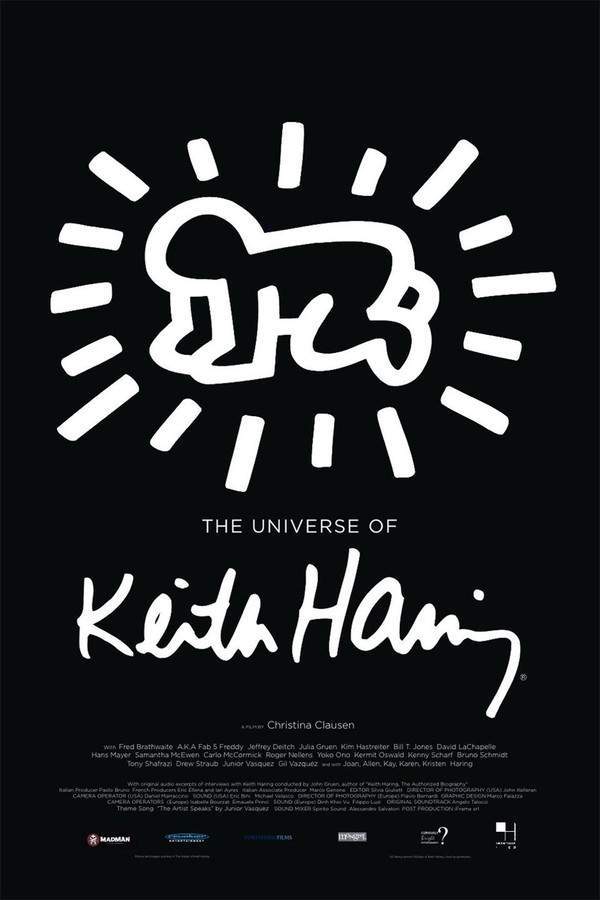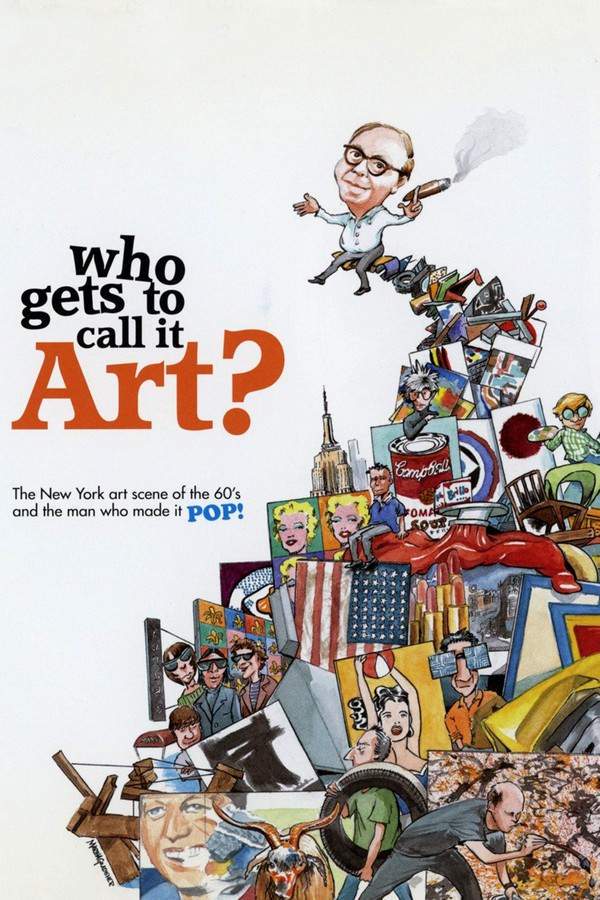
The Universe of Keith Haring 2008
Directed by

Christina Clausen
The Universe of Keith Haring Plot Summary
Read the complete plot summary and ending explained for The Universe of Keith Haring (2008). From turning points to emotional moments, uncover what really happened and why it matters.
The documentary directed by Christina Clausen shines a light on the life of Keith Haring, a pivotal figure in the vibrant downtown New York art scene of the 1980s. Celebrated for his iconic imagery that shaped late 20th-century art, Haring’s journey began in a small, conservative town in Pennsylvania, where his early experiences laid the groundwork for his future as a world-renowned artist.
As the film unfolds, viewers are treated to an affectionate and personal look at Haring’s life, showcasing his rise to fame, where he mingled with cultural icons such as Madonna, Jean-Michel Basquiat, and Andy Warhol. Through a rich tapestry of interviews and archival footage, Clausen presents the essence of Haring’s influence and creativity.
The documentary features insights from a host of notable personalities like Fred Brathwaite, also known as Fab 5 Freddy, along with Jeffrey Deitch, Julia Gruen, and Kim Hastreiter. Additional voices include Bill T. Jones, David LaChapelle, Hans Mayer, Samantha McEwen, Carlo McCormick, Roger Nellens, Yoko Ono, Kermit Oswald, Kenny Sharf, Bruno Schmidt, Tony Shafrazi, Drew Straub, Junior Vasquez, and Gil Vasquez. Notably, Joan, Allen, Kay, Karen, and Kristen Haring also contribute to the narrative, painting a comprehensive picture of Haring’s vibrant legacy.
Having been an Official Selection at prominent festivals such as Tribeca, Rome, and Outfest International Film Festivals, the documentary has garnered praise from numerous esteemed publications like The New York Times, Los Angeles Times, Boston Globe, and Village Voice. This film not only captures the spirit of Haring’s work but also affirms his position as a cultural icon whose relevance continues to resonate today.
The Universe of Keith Haring Timeline
Follow the complete movie timeline of The Universe of Keith Haring (2008) with every major event in chronological order. Great for understanding complex plots and story progression.
Early Life in Pennsylvania
Keith Haring was born in a small, conservative town in Pennsylvania. His early experiences in this environment laid the groundwork for his future as an artist, influencing his unique perspective and creativity.
Move to New York City
In the early 1980s, Haring moved to New York City, immersing himself in the vibrant downtown art scene. This transition marked the beginning of his pivotal role in shaping the contemporary art landscape.
Rise to Fame
Haring quickly rose to fame, becoming renowned for his iconic imagery and bold artistic style. His work resonated with a wide audience, making him a standout figure in the art community.
Connections with Cultural Icons
As he gained popularity, Haring mingled with cultural icons such as Madonna, Jean-Michel Basquiat, and Andy Warhol. These relationships helped to further cement his status in the art world during the 1980s.
Innovative Artwork
Haring's artwork was characterized by a distinctive use of line and vibrant colors, often incorporating social themes. His pieces conveyed messages of love, peace, and activism, making a profound impact.
Influence of Street Art
Haring's involvement in street art played a crucial role in his artistic journey. He utilized public spaces to express his creativity and engage with the community, which amplified his influence.
Artistic Collaborations
The documentary shines a light on Haring's collaborations with various artists and performers. Through these partnerships, he explored different mediums and expanded the reach of his art.
Cultural Impact
Haring's work transcended the art world, touching on profound cultural and social issues of the time. His ability to communicate through art established him as a significant cultural icon.
Notable Interviews and Insights
The documentary includes insights from notable personalities such as Fab 5 Freddy, Jeffrey Deitch, and Yoko Ono. Their contributions provide a rich context to Haring's life and impact within the art community.
Legacy and Recognition
Haring's legacy continues to resonate, as evidenced by his posthumous recognition in various art circles. His work remains influential, inspiring new generations of artists and activists alike.
Festival Screenings
The documentary has been officially selected for prominent film festivals, including Tribeca, Rome, and Outfest International. This selection highlights its critical acclaim and importance in documenting Haring's story.
Critical Acclaim
Numerous esteemed publications, such as The New York Times and Los Angeles Times, have praised the documentary. These accolades underscore the film's significance in capturing Haring's artistic journey and cultural contributions.
Continuing Relevance
The documentary illustrates Haring's continuing relevance in contemporary culture. His messages of positivity and activism resonate today, connecting with ongoing social movements.
Personal Reflections
Family members and close friends, including Joan and Allen Haring, share personal reflections on his life. Their insights add depth to the understanding of Haring's character and the influences in his life.
Cultural Impact Today
Haring's work and ethos continue to inspire various art forms and cultural endeavors. His life's work encourages discussions on art's role as a platform for social change even decades after his passing.
The Universe of Keith Haring Characters
Explore all characters from The Universe of Keith Haring (2008). Get detailed profiles with their roles, arcs, and key relationships explained.
Keith Haring
Keith Haring was a passionate artist whose work transcended traditional boundaries, making art accessible to all. He was known for his vibrant, energetic designs that conveyed important social messages, particularly around AIDS awareness and LGBTQ+ rights.
The Universe of Keith Haring Settings
Learn where and when The Universe of Keith Haring (2008) takes place. Explore the film’s settings, era, and how they shape the narrative.
Time period
1980s
The 1980s was a transformative decade characterized by the rise of diverse cultural movements, including punk rock, hip hop, and street art. It was marked by a vibrant New York art scene where avant-garde artists thrived, challenging social norms and pushing creative boundaries.
Location
New York, Pennsylvania
New York City, especially during the 1980s, was a hub of artistic expression and cultural dynamism, where movements like street art flourished. Pennsylvania, Keith Haring's hometown, contrasts this vibrant life with its conservative and small-town atmosphere, serving as the foundational backdrop for his early artistic experiences.
The Universe of Keith Haring Themes
Discover the main themes in The Universe of Keith Haring (2008). Analyze the deeper meanings, emotional layers, and social commentary behind the film.
🎨
Artistic Expression
The theme of artistic expression is central to the documentary, showcasing how Keith Haring used his art to address social issues and connect with the public. His iconic imagery not only defined a generation but also paved the way for future artists to explore and express their creativity.
🌈
Cultural Icon
Haring's journey to becoming a cultural icon represents the power of art in shaping identity and community. His interactions with other influential figures highlight the interconnectedness of art and culture in promoting social change and equality.
Movies with Similar Twists and Themes
Uncover films that echo the narrative beats, emotional arcs, or dramatic twists of the one you're exploring. These recommendations are handpicked based on story depth, thematic resonance, and spoiler-worthy moments — perfect for fans who crave more of the same intrigue.
Featured on this page

What's After the Movie?
Not sure whether to stay after the credits? Find out!
Explore Our Movie Platform
New Movie Releases (2025)
Famous Movie Actors
Top Film Production Studios
Movie Plot Summaries & Endings
Major Movie Awards & Winners
Best Concert Films & Music Documentaries
© 2025 What's After the Movie. All rights reserved.






